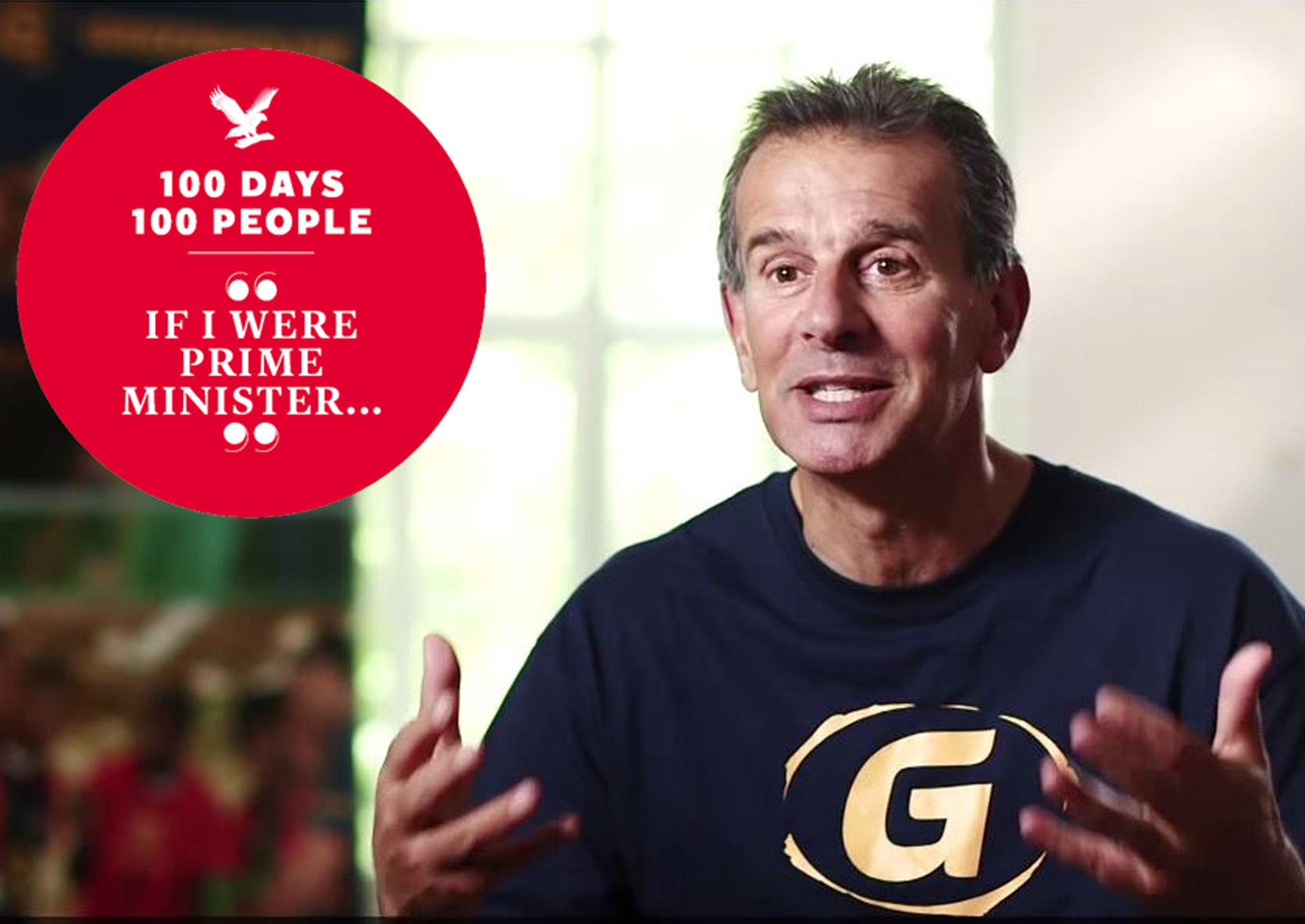If I were Prime Minister: Sport would be used to help disadvantaged young people
Our series in the run-up to the General Election – 100 days, 100 contributors, but no politicians – continues with the chief executive of Greenhouse Sports

Your support helps us to tell the story
From reproductive rights to climate change to Big Tech, The Independent is on the ground when the story is developing. Whether it's investigating the financials of Elon Musk's pro-Trump PAC or producing our latest documentary, 'The A Word', which shines a light on the American women fighting for reproductive rights, we know how important it is to parse out the facts from the messaging.
At such a critical moment in US history, we need reporters on the ground. Your donation allows us to keep sending journalists to speak to both sides of the story.
The Independent is trusted by Americans across the entire political spectrum. And unlike many other quality news outlets, we choose not to lock Americans out of our reporting and analysis with paywalls. We believe quality journalism should be available to everyone, paid for by those who can afford it.
Your support makes all the difference.Since sport and the way we fund it has occupied me for the last decade, I doubt that I’d be able to change track once inside Number 10. In simple terms, we need to spend what money there is for sport – and in these times of austerity it’s not as much as many would like - in smarter ways, We need to focus less on providing opportunities for more wealthy citizens to dabble in sport, and more on bringing sport to those for whom it can deliver real and lasting social change, as part of a package of mentoring and long-term support.
At the moment, a lot of the Department for Culture Media and Sport’s budget goes towards increasing participation in sport - and yet much of the money distributed is spent on groups who are playing already and would probably do so even without governmental funding. So, we need to change the way we allocate funding.
I will stop giving money to short-term, light touch programmes that after six weeks have made no lasting difference to those who take part. We need to stop playing the numbers game where a programme with 100 people is valued as twice as much as one with 50. What good is making little or no difference to 100 people’s lives if you can transform – permanently – the lives of, say, 20?
The current funding arrangement suits the middle classes very well but rather like child benefit, would it not be better targeted to those most in need? Is it a surprise that at present, a majority of medal winners at the Olympics are private-school educated? Is it correct that many of the sports governing bodies are not trying to increase participation by talking to the poorer communities who are not presently playing their sport?
Things are moving in this direction and my role would be to encourage Sport England and other governmental organisations to move further and faster. By directing sports money towards more disadvantaged communities, we will see benefits in in health, crime reduction and more young people finding purpose and employment
We all know that good schools are the ones with good teachers. Good sports programmes are the ones with the best coaches. This does not simply mean coaches that are technically good but ones that know how to engage with their local communities and who know how to develop the people they are working with. Very few of us can aspire to win Olympic gold but that does not mean that we cannot use the power of sport to improve the educational levels in our country. Good coaches transform people's lives. Let us invest in our coaches – the sporting workforce - and our future will then be even greater than our past.
My administration would also address the money flowing into the Premier League: some £5bn after the latest TV deal. Instead of just pushing the salaries of stars (and journeymen) even higher, more of that funding should be diverted by the clubs into sports programmes in their area which aim to tackle some of the social ills that can attend disadvantage.
Michael de Giorgio is the Chief Executive of Greenhouse Sports charity
Join our commenting forum
Join thought-provoking conversations, follow other Independent readers and see their replies
Comments